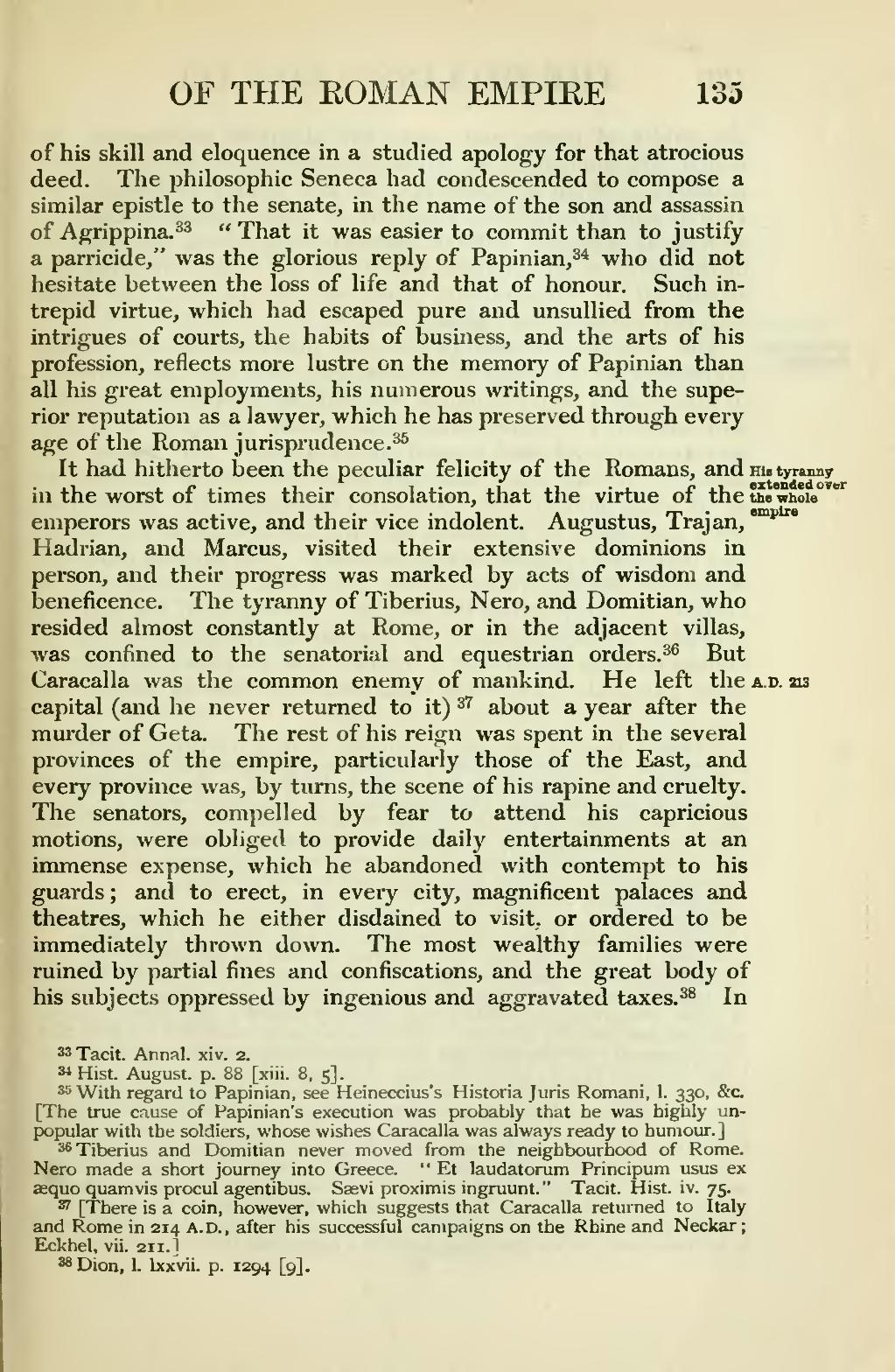This page has been validated.
OF THE ROMAN EMPIRE
135
of his skill and eloquence in a studied apology for that atrocious deed. The philosophic Seneca had condescended to compose a similar epistle to the senate, in the name of the son and assassin of Agrippina.[1] "That it was easier to commit than to justify a parricide," was the glorious reply of Papinian,[2] who did not hesitate between the loss of life and that of honour. Such intrepid virtue, which had escaped pure and unsullied from the intrigues of courts, the habits of business, and the arts of his profession, reflects more lustre on the memory of Papinian than all his great employments, his numerous writings, and the superior reputation as a lawyer, which he has preserved through every age of the Roman jurisprudence.[3]
His tyranny extended over the whole empire It had hitherto been the peculiar felicity of the Romans, and in the worst of times their consolation, that the virtue of the the whole emperors was active, and their vice indolent. Augustus, Trajan, Hadrian, and Marcus, visited their extensive dominions in person, and their progress was marked by acts of wisdom and beneficence. The tyranny of Tiberius, Nero, and Domitian, who resided almost constantly at Rome, or in the adjacent villas, was confined to the senatorial and equestrian orders.[4] But A.D. 213 Caracalla was the common enemy of mankind. He left the capital (and he never returned to it)[5] about a year after the murder of Geta. The rest of his reign was spent in the several provinces of the empire, particularly those of the East, and every province was, by turns, the scene of his rapine and cruelty. The senators, compelled by fear to attend his capricious motions, were obliged to provide daily entertainments at an immense expense, which he abandoned with contempt to his guards; and to erect, in every city, magnificent palaces and theatres, which he either disdained to visit, or ordered to be immediately thrown down. The most wealthy families were ruined by partial fines and confiscations, and the great body of his subjects oppressed by ingenious and aggravated taxes.[6] In- ↑ Tacit. Annal. xiv. 2.
- ↑ Hist. August, p. 88 [xiii. 8, 5].
- ↑ With regard to Papinian, see Heineccius's Historia Juris Romani, 1. 330, &c. [The true cause of Papinian's execution was probably that he was highly unpopular with the soldiers, whose wishes Caracalla was always ready to humour.]
- ↑ Tiberius and Domitian never moved from the neighbourhood of Rome. Nero made a short journey into Greece. "Et laudatorum Principum usus ex æquo quamvis procul agentibus. Sævi proximis ingruunt." Tacit. Hist. iv. 75.
- ↑ [There is a coin, however, which suggests that Caracalla returned to Italy and Rome in 214 A.D., after his successful campaigns on the Rhine and Neckar; Eckhel, vii. 211.]
- ↑ Dion, 1. lxxvii. p. 1294 [9].

